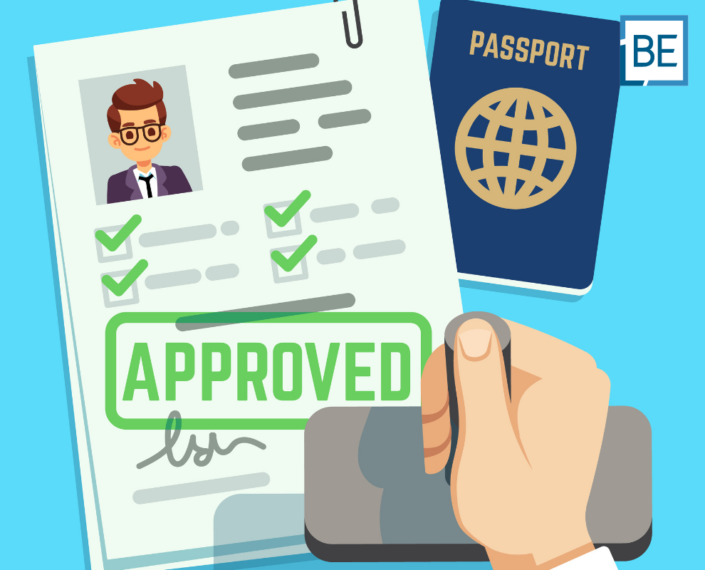Legal
Dormant Companies in Thailand: Compliance, Benefits, and Legal Obligations
A dormant company in Thailand is a company that has been registered and legally incorporated but is not currently conducting any business activities. Typically, dormant companies do not generate revenue or income and have no employees or assets.
Dormant companies are still subject to Thai laws, including compliance with accounting, tax, and other regulatory requirements. Dormant companies must satisfy their compliance and legal responsibilities to avoid penalties or fines being imposed on the company.
Key points
- A dormant company in Thailand is a company that has been registered and legally incorporated but is not currently conducting any business activities.
- Dormant companies are still subject to compliance with accounting, tax, and other regulatory requirements.
- Dormant companies are also used for IP protection, ownership of land, and as a form of investment vehicle.
What is a dormant company?
A dormant company in Thailand is a fully incorporated company that is no longer undertaking business activities. By not undertaking any form of activity, typically, dormant companies do not generate any revenue or income or have any employees or assets.
Please be aware that dormant companies in Thailand are still required to file annual reports and pay yearly fees to the relevant government agency, such as the Department of Business Development (DBD) or the Revenue Department, to maintain their registration and legal status.
The requirements listed above differ from that of Singapore, as Thailand still needs an established framework for dormant companies. Therefore, in Thailand, the company is seen as an operating company for legal, accounting, and tax obligations.
Are there any benefits to having a dormant company?
Dormant companies in Thailand can be helpful for various reasons, including:
- Owning property – under Thai law, companies can own land and property.
- Protecting intellectual property rights – Dormant companies can safeguard your company’s name from being taken by others, in contrast to dissolving it, which would make the company name available for other companies to register. Furthermore, a dormant company allows you to retain the rights to your company’s logo, slogan, or designs by registering them with the Bangkok Trade Office; doing so prevents others from using them.
- Reducing costs – Dormant companies can reduce maintenance costs as you only need to maintain the company’s annual accounting and rental fees for virtual offices.
- Used as an investment vehicle – dormant companies can also be used as a way for a company or individual to own another company’s stock or assets.
Dormant companies may interest individuals or companies who may not currently be able/or want to undertake business activities in Thailand but may be interested in doing so in the future.
This is also a more convenient option than dissolving and then reincorporating the company at a later date. As long as you comply with the accounting requirements, you can also set up a company in advance and declare it dormant for an unspecified period.
What are the annual compliance requirements for a dormant company in Thailand?
Dormant companies in Thailand must satisfy the following requirements regardless of whether any income was made or business is undertaken.
Corporate income tax must be filed twice a year, consisting of half-year and yearly taxes.
The dormant company is also required to submit financial statements to be audited by an auditor and submitted. Failure to submit financial statements for three consecutive years will result in the dormant company being removed from the Department of Business Development’s (DBD) system. This will change the company’s status from dormant to defunct.
Should a company become defunct and the owner wishes to recover it, they will need to request the court to order the Registrar to enroll the company back into the system as per section 1246 (6) of the Civil and Commercial Code.
Finally, if the dormant company is registered for VAT, it must file VAT (form PP.30) monthly, even if there have been no business transactions. Failure to file the required VAT returns will lead to a fine and penalties.
How can Belaws help?
You can talk directly to one of our experts for more information about dormant companies in Thailand.
This article is for information purposes only and does not constitute legal advice.
Our consultations last for a period of up to 1 hour and are conducted by expert Lawyers who are fluent in English, French and Thai.
Consultations can be hosted via WhatsApp or Video Conferencing software for your convenience. A consultation with one of our legal experts is undoubtedly the best way to get all the information you need and answer any questions you may have about your new business or project.
USD 150
Up to 1 hour
Online payment (Paypal or Credit card)
Legal consultation can be conducted in English, French or Thai
Legal consultations are handled by experienced lawyers from the relevant fields of practice
Frequently asked questions
Can a foreigner open a company in Thailand?
Yes it is possible for a foreigner to open a company in Thailand. There are also options available which allow 100% foreign owned companies as well.
How much does it cost to set up a company in Thailand?
The official fees for registering a company in Thailand are THB 7,500.
How do I start a limited company in Thailand?
- Step 1: Choose and register a company name.
- Step 2: Draft and file the Memorandum of Association.
- Step 3: Call and hold a Statutory Meeting of the shareholders
- Step 4: Register the Company with the Ministry of Commerce.
- Step 5: Register the company for Value-Added Tax (VAT) and Income Tax
Is it good to start a business in Thailand?
Thailand is an attractive option for those wishing to start a business. Thailand has a great infrastructure in place and scheme such as the BOI provide great incentives for companies to take advantage of.
How much money do you need to start a business in Thailand?
Typically, it costs between THB 40,000 to THB 60,000 (excluding VAT and Government fees) to start a business in Thailand.The official fees for registering a company in Thailand are THB 7,500.
How can a foreigner start a small business in Thailand?
Yes, foreigners can start a business in Thailand. However, certain business activities are restricted by the Foreign Business Act and in order for businesses to undertake them they must obtain a Foreign Business Licence/Certificate which can be time consuming and complicated.
What is the biggest problem in Thailand?
The biggest problem facing foreign owned companies is being able to undertake their desired business activity as a 100% foreign owned company. Many business activities are protected by the Foreign Business Act and in order for a company to operate in these protected industries, they will be required to be majority owned by Thai Shareholders (unless a BOI promotion has been obtained).
Why is it hard to do business in Thailand?
The Foreign Business Act limits to the business activities a 100% foreign owned company can undertake. This means Thai Shareholders will need to be sought or a BOI promotion obtained in order for a company to legally operate.
Can I own a company in Thailand?
Yes, foreigners can start a business in Thailand. However, certain business activities are restricted by the Foreign Business Act and in order for businesses to undertake them they must obtain a Foreign Business Licence/Certificate which can be time consuming and complicated.
Related articles
Subscribe today
Subscribe today
To our newsletter for all the latest legal news
in South East Asia, Belaws updates and
special promotions on our services.
To our newsletter today for all the latest legal news in South East Asia,
Belaws updates and special promotions on our services.







